Emphatic or Reflexive Pronouns (Chart, 80+ Examples & List)
Emphatic or Reflexive Pronouns Reflexive pronouns direct their action back to the subject. A pronoun that is formed by adding ‘self’ or ‘selves’ to a…
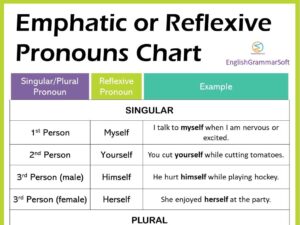
Emphatic or Reflexive Pronouns Reflexive pronouns direct their action back to the subject. A pronoun that is formed by adding ‘self’ or ‘selves’ to a…
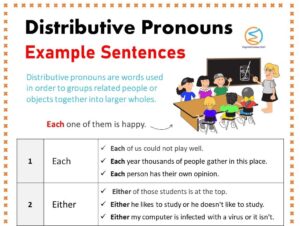
A pronoun that describes whether things or persons are mentioned separately or collectively is called a distributive pronoun. It refers to some noun going before…
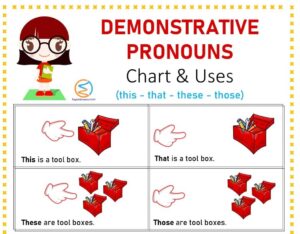
Demonstrative Pronouns A demonstrative pronoun points to some noun. It is called demonstrative because it points to some noun going before and is used instead…
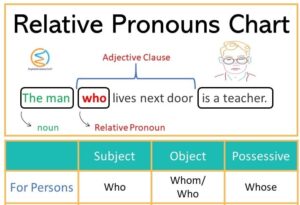
Relative Pronouns A relative pronoun introduces a clause. It refers to some noun going before and also joins two sentences together. It does the work…
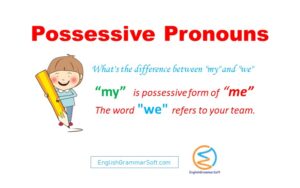
What’s the difference between “my” and “we” in business? Good question. “My” is the possessive form of “me”; it refers to yourself. The word “we”…

Periphrases Definition It is derived from a Greek word Periphrazein which means to express short expression of writing into many or very long words. It…
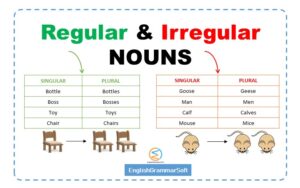
Regular and Irregular Nouns We can make some nouns plural easily without changing them but in some cases, nouns become irregular when we change them…
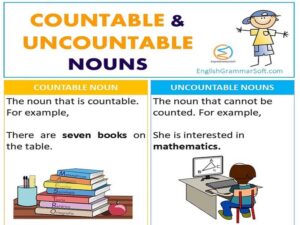
Countable and Uncountable Nouns The nouns are the names of things, people, or places. The nouns have different classifications. Countable and uncountable nouns are types…
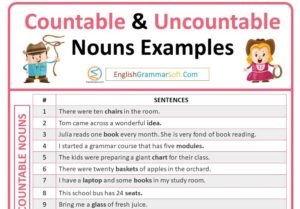
Sentences with Countable and Uncountable Nouns (50 Examples) Sentences with countable nouns Countable nouns are found in singular and plural forms. These are the name…
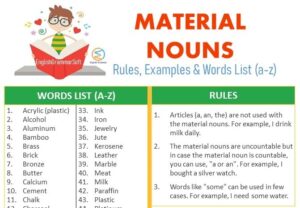
Material Nouns in English The material, elements, or substances from which different kinds of things are made are called material nouns. For example, plastic, diamond,…